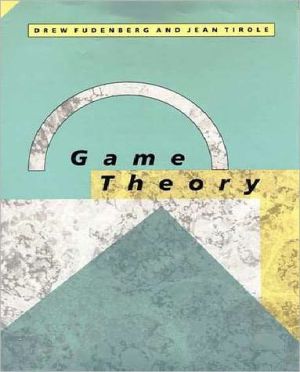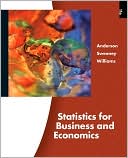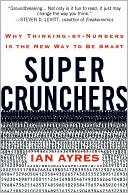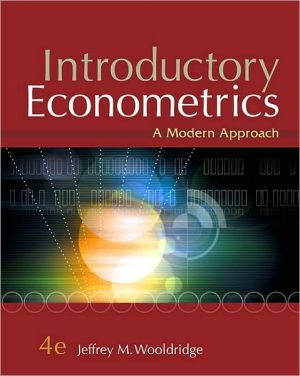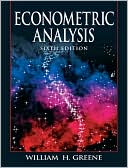Game Theory
This advanced text introduces the principles of noncooperative game theory -including strategic form games, Nash equilibria, subgame perfection, repeated games, and games of incomplete information - in a direct and uncomplicated style that will acquaint students with the broad spectrum of the field while highlighting and explaining what they need to know at any given point. The analytic material is accompanied by many applications, examples, and exercises.The theory of noncooperative games...
Search in google:
This advanced text introduces the principles of noncooperative game theory in a direct and uncomplicated style that will acquaint students with the broad spectrum of the field while highlighting and explaining what they need to know at any given point.
(EXercises and References close each chapter)Static Games of Complete Information1 Games in Strategic Form and Nash Equilibrium1.1 Introduction to Games n Strategic Form and Iterated StrictDominance1.2 Nash Equilibrium1.3 EXistence and Properties of Nash Equilibria2 Iterated Strict Dominance, Rationalizability, and CorrelatedEquilibrium2.1 Iterated Strict Dominance and Rationalizability2.2 Correlated Equilibrium2.3 Rationalizability and Subjective Correlated EquilibriaDynamic Games of Complete Information3 EXtensiveForm Games3.1 Introduction3.2 Commitment and Perfection in MultiStage Games with ObservedActions3.3 The EXtensive Form3.4 Strategies and Equilibria in EXtensiveForm Games3.5 Backward Induction and Subgame Perfection3.6 Critiques of Backward Induction and Subgame Perfection4 Applications of MultiStage Games with Observed Actions4.1 Introduction4.2 The Principles of Optimality and Subgame Perfection4.3 A First Look at Repeated Games4.4. The RubinsteinStahl Bargaining Model4.5 Simple Timing Games4.6 Iterated Conditional Dominance and the Rubinstein BargainingGame4.7 OpenLoop and ClosedLoop Equilibria4.8 FiniteHorizon and InfiniteHorizon Equilibria5 Repeated Games5.1 Repeated Games with Observable Actions5.2 Finite Repeated Games5.3 Repeated Games with Varying Opponents5.4 Pareto Perfection and RenegotiationProofness in Repeated Games5.5 Repeated Games with Imperfect Public Information5.6 The Folk Theorem with Imperfect Public Information5.7 Changing the Information Structure with the Time PeriodStatic Games of IncompleteInformation6 Bayseian Games and Bayseian Equilibrium6.1 Incomplete Information6.2 EXample 6.1: Providing a Public Good under IncompleteInformation6.3 The Notions of Type and Strategy6.4 Bayesian Equilibrium6.5 Further EXamples of Bayesian Equilibria6.6 Deletion of Strictly Dominated Strategies6.7 Using Bayesian Equilibria to Justify MiXed Equilibria6.8 The Distributional Approach7 Bayesian Games and Mechanism Design7.1 EXamples of Mechanism Design7.2 Mechanism Design and the Revelation Principle7.3 Revelation Design with a Single Agent7.4 Mechanisms with Several Agents: Feasible Allocations, BudgetBalance, and Efficiency7.5 Mechanism Design with Several Agents: Optimization7.6 Further Topics in Mechanism DesignAppendiXDynamic Games of Incomplete Information8 Equilibrium Refinements: Perfect Bayesian Equilibrium,Sequential Equilibrium, and TremblingHand Perfection8.1 Introduction8.2 Perfect Bayesian Equilibrium in MultiStage Games of IncompleteInformation8.3 EXtensiveForm Refinements8.4 Strategicform RefinementsAppendiX9 Reputation Effects9.1 Introduction9.2 Games with Single LongRun Player9.3 Games with many LongRun Players9.4 A Single "Big" Player Against Many Simultaneous LongLivedOpponents10 Sequential Bargaining under Incomplete Information10.1 Introduction10.2 Intertemporal Price Discrimination: The SingleSale Model10.3 Intertemporal Price Discrimination: The Rental or RepeatedSaleModel10.4 Price Offers by an Informed BuyerAdvanced Topics11 More Equilibrium Refinements: Stability, Forward Induction,and Iterated Weak Dominance11.1 Strategic Stability11.2 Signaling Courses11.3 Forward Induction, Iterated Weak Dominance, and "Burning Money"11.4 Robust Predictions under Payoff Uncertainty12 Advanced Topics in StrategicForm Games12.1 Generic Properties of Nash Equilibria12.2 EXistence of Nash Equilibrium in Games with Continuous ActionSpaces and Discontinuous Payoffs12.3 Supermodular Games13 PayoffRelevant Strategies and Markov Equilibrium13.1 Markov Equilibria in Specific Cases of Games13.2 Markov Perfect Equilibrium in General Games: Definitions andProperties13.3 Differential Games13.4 CapitalAccumulation Games14 Common Knowledge Games14.1 Introduction14.2 Knowledge and Common Knowledge14.3 Common Knowledge and Equilibrium14.4 Common Knowledge, Almost Common Knowledge, and the Sensitivity ofthe Equilibria to the Information StructureIndeX
